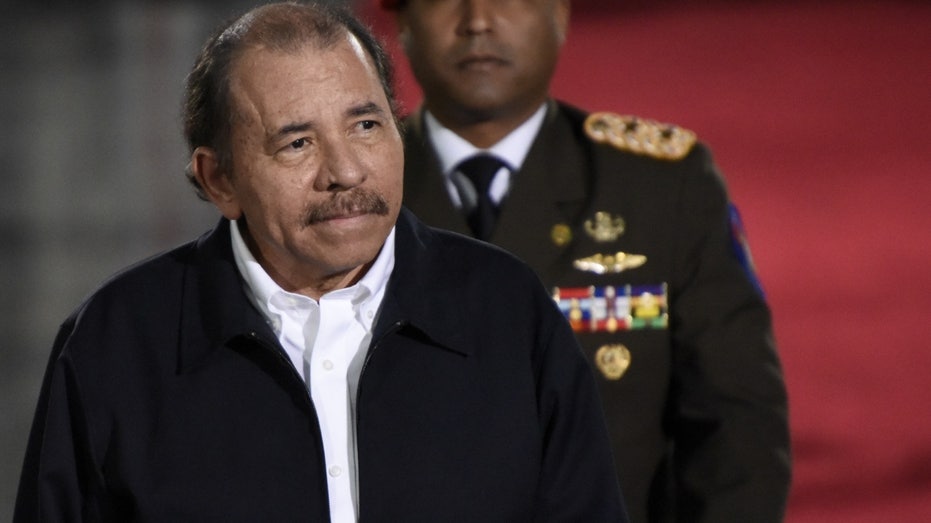American tech firms have noticeably pulled back from a major Chinese tech conference in a move that plays off on tensions that have simmered in the industry for some time, according to experts.
“Beijing and Washington have long been on a collision course in terms of setting and shaping emerging technology standards, most notably those involving artificial intelligence,” said Craig Singleton, senior China fellow at the nonpartisan Foundation for Defense of Democracies.
“Increasingly, American technology executives understand that collaborating in any way with China’s tech behemoths could quickly get them into hot water with U.S. policymakers.
“As the tech war between the two countries continues to heat up, U.S. tech firms will increasingly be forced to choose sides,” Singleton explained. “The likely result is that tech collaboration between the two countries will continue to decrease in the coming years, if not disappear altogether.”
UN SECURITY COUNCIL HOLDS FIRST-EVER MEETING ON AI AS CONCERNS ABOUT RISK TO PEACE GROW
China’s annual World Artificial Intelligence Conference (WAIC) in Shanghai starts this week. But while dozens of American tech giants lined up to serve as “elite partners” to the conference in years past, only one company – Qualcomm – has done so this year, the South China Morning Post reported.
Companies such as IBM, Microsoft and Amazon Web Services served as strategic partners for the 2019 conference, and Elon Musk spoke at the conference. The WAIC has been held since 2018 and lists eight government cosponsors.
Notable companies including ChatGPT maker OpenAI have decided to skip this year’s conference. No U.S. company has signed up for sponsorship or other partnerships, and no major American tech expert or industry figure plans to speak, according to the International Business Times.
However, representatives from Apple, Amazon, Microsoft and Tesla will still attend, according to the conference’s organizer.
Firms appear wary not only of the regulatory acrobatics needed to comply with Beijing, but also worry about the appearance of sponsoring a Chinese conference while the U.S. and China fight for control of a vital and emerging technology.
US SET TO UP THE ANTE IN TIT-FOR-TAT FEUD WITH COMMUNIST COUNTRY
“As Washington ramps up its regulatory assault on China’s technology sector, Beijing will, no doubt, face additional setbacks in its quest to reshape international technology and trade to promote its great power interests,” Singleton noted.
Some experts have highlighted China’s recent plans to introduce laws requiring any artificial intelligence (AI) platform to pass an assessment to ensure the tech adheres to a number of standards. The platform must contain no discriminatory content, false information or content with the potential to harm personal privacy or intellectual property.
Beijing appears intent on ensuring AI does not end up suggesting regime subversion or disrupt economic or social order. The Cyberspace Administration of China (CAC) stressed that any AI product must align with the country’s core socialist values. Providers will face fines, suspended services or even criminal investigations if they fail to comply with the rules.
CONGRESS PUSHES AGGRESSIVE USE OF ARTIFICIAL INTELLIGENCE IN FEDERAL GOVERNMENT
Giovanna M. Cinelli, an advisory board member for the Cyber Innovation Lab at the Foundation for Defense of Democracies, told Fox News Digital these are reflections of longtime policies within the country and that other China-first policies also make it difficult for developers to pass these assessments – among other things.
“There are government procurement requirements that have been around in China, somewhat similar to the U.S. Buy America Act provisions where for certain procurements that directly or indirectly support or supply government agencies, there needs to be a certain amount of local indigenous content which would be non-foreign content,” Cinelli said.
“There are anti-foreign sanctions rules which don’t permit companies in China, for example, to import or use technologies or products that may be subject to extraterritorial application of other countries’ laws like U.S. export laws,” she added, noting that these “limitations have been in place for a while.
“There’s also the state secrets laws in China, where certain technical and other information that the government considers to be state secrets can only be handled in a specific way and by specific people in China.”
AI NOW BEING USED TO GENERATE CHILD PORNOGRAPHY, BLACKMAIL TEENAGERS, EXPERT WARNS
The U.S. late last year imposed some new restrictions on chip exports to China, hitting China’s ability to access and develop certain computing and semiconductor items.
Through the use of new thresholds and classifications, the U.S. has made it difficult for American manufacturers to know what they can and can’t export, leading to a 15% drop-off in chip equipment exports expected over the following six months, according to Nikkei.
And Washington has indicated it might impose further restrictions, such as cutting off access to certain Nvidia chips the company marketed to China after the initial round of new limits placed on its most advanced chips, the South Morning China Post reported.
“If you talk to people who work in a collaborative environment, a technology environment, they will tell you that siloing information results in duplication of effort, in missing points because people are looking at things in different perspectives. And you need to put things together, but you can’t because they’re silos,” Cinelli explained. “So there could be some downsides.”




